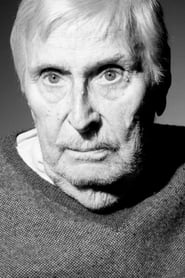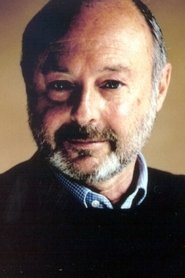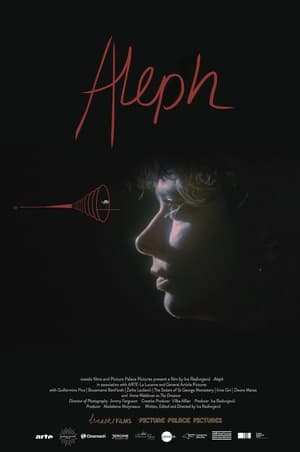
CHoosing at Twenty(2017)
Between 1954-1962, one hundred to three hundred young French people refused to participate in the Algerian war. These rebels, soldiers or conscripts were non-violent or anti-colonialists. Some took refuge in Switzerland where Swiss citizens came to their aid, while in France they were condemned as traitors to the country. In 1962, a few months after Independence, Villi Hermann went to a region devastated by war near the Algerian-Moroccan border, to help rebuild a school. In 2016 he returned to Algeria and reunited with his former students. He also met French refractories, now living in France or Switzerland.




Movie: CHoosing at Twenty
Top 10 Billed Cast
Self
Self
Self
Self
Self
Self
Self

CHoisir à vingt ans
HomePage
Overview
Between 1954-1962, one hundred to three hundred young French people refused to participate in the Algerian war. These rebels, soldiers or conscripts were non-violent or anti-colonialists. Some took refuge in Switzerland where Swiss citizens came to their aid, while in France they were condemned as traitors to the country. In 1962, a few months after Independence, Villi Hermann went to a region devastated by war near the Algerian-Moroccan border, to help rebuild a school. In 2016 he returned to Algeria and reunited with his former students. He also met French refractories, now living in France or Switzerland.
Release Date
2017-08-24
Average
6.8
Rating:
3.4 startsTagline
Genres
Languages:
العربيةFrançaisKeywords
Recommendations Movies
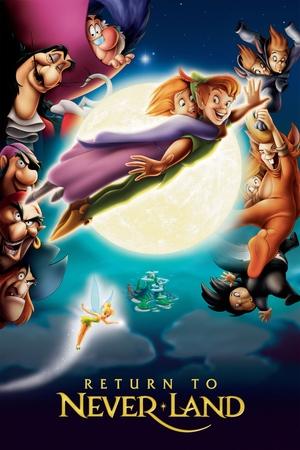 6.5
6.5Return to Never Land(en)
In 1940, the world is besieged by World War II. Wendy, all grown up, has two children; including Jane, who does not believe Wendy's stories about Peter Pan.
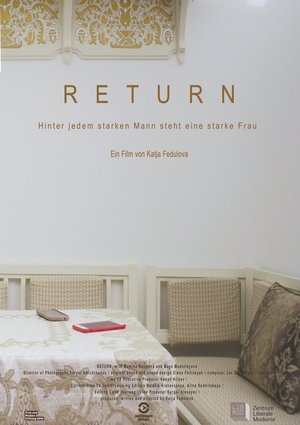 6.5
6.5Return(tt)
"Behind every strong man is a strong woman!", Mumine shouts as her husband is arrested. She has 4 children, she's in her mid-30s, and she's the wife of a Crimean Tatar political prisoner. Muslim Crimean Tatars have been oppressed for a long time. They were deported under Stalin, allowed to return under Gorbachev, and since the occupation of Crimea in 2014 under Putin, they are being persecuted again. "Return" is a portrait of Mumine and Maye, two strong women struggling with the consequences of oppression. Their traditional understanding of their role as women does not stand in the way of their dedication. They possess strength, beauty and dignity. Only in their most intimate moments, they are overwhelmed by desperate helplessness.
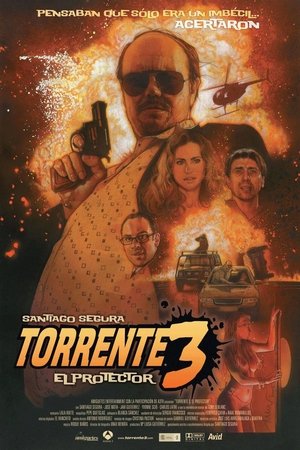 5.4
5.4Torrente 3: The Protector(es)
A popular and beautiful politician plans to expose the evil-doings of a multinational corporation. Hoping to silence her, the corporation's top executives decide to hire the most incompetent detective they can find to act as her bodyguard.
Return(en)
Owen, a young man is dissatisfied with his life. He heads into the forest to escape and learns a lot during his time there.
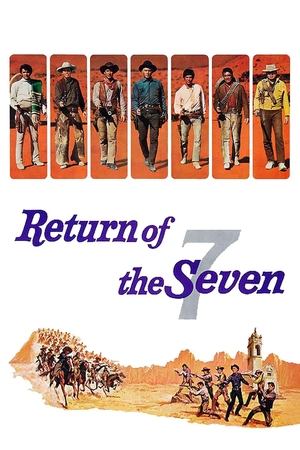 6.1
6.1Return of the Seven(en)
Chico, one of the remaining members of The Magnificent Seven, now lives in the town that they (The Seven) helped. One day someone comes and takes most of the men prisoner. His wife seeks out Chris, the leader of The Seven for help. Chris also meets Vin another member of The Seven. They find four other men and they go to help Chico.
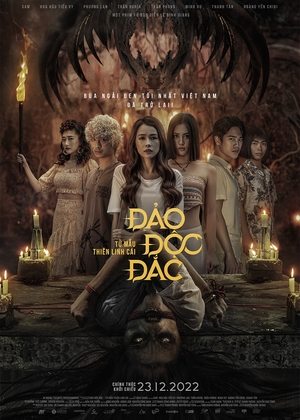 6.1
6.1Jackpot Island - Kumanthong Returns(vi)
The "Jackpot Island - Kumanthong Returns" continues to spread obsession and doubts about one of Southeast Asia's most terrifying divinities. Who is really hiding behind the evil, monstrous face and holding terrifying secrets? What does a deadly island and the terrifyingly mysterious appearance of monstrous mermaids have to do with this brutal and terrifying spell?
 8.2
8.2Scooby-Doo! Haunted Holidays(en)
Scooby-Doo and the gang participate in a toy store's holiday parade where they discover the abandoned haunted clock tower with a troubled past. A sinister snowman haunts the streets and accompanied with a large blizzard, threatens to close down the toy store for good.
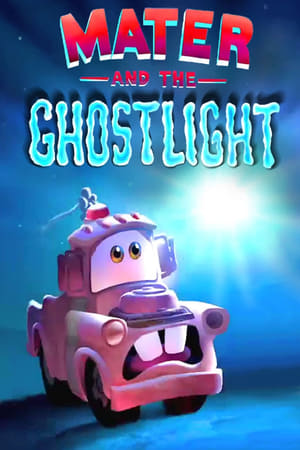 6.2
6.2Mater and the Ghostlight(en)
Mater, the rusty but trusty tow truck from Cars, spends a day in Radiator Springs playing scary pranks on his fellow townsfolk. That night at Flo's V8 Café, the Sheriff tells the story of the legend of the Ghostlight, and as everyone races home Mater is left alone primed for a good old-fashioned scare.
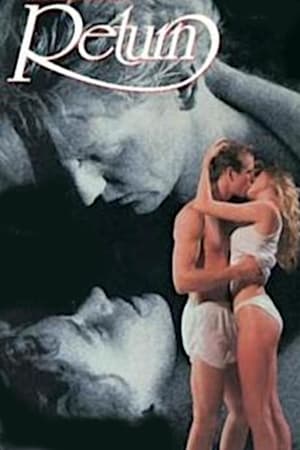 6.1
6.1Return(en)
After reading an article about hypnotic regression, a woman whose maternal grandfather died when she was only three years old contacts the hypnotic subject named in the article believing that he is the reincarnation of her grandfather, and hoping that she can learn the truth about how he died.
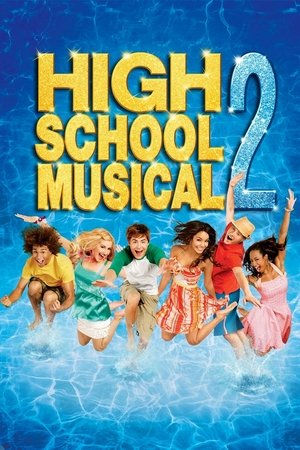 6.5
6.5High School Musical 2(en)
The East High Wildcats are gearing up for big fun as they land the coolest summer jobs imaginable. Troy, Gabriella, Chad, and Taylor have scored sweet gigs at the Lava Springs Country Club owned by Sharpay and Ryan's family. Sharpay's first rule of business: Get Troy. As Troy experiences a life of privilege he's never known, will he give up the Wildcats and Gabriella to rise to the top?
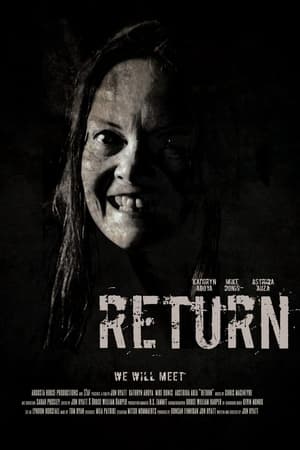 6.4
6.4Return(en)
A young couple purchase their new home to start a life together, only to find out the elderly couple next door have other plans for them.
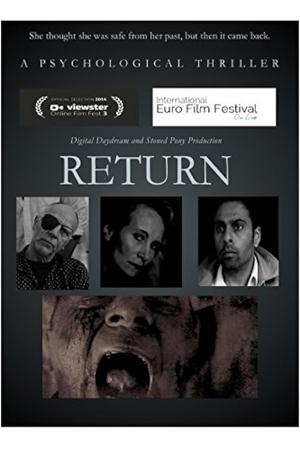 6.6
6.6Return(en)
A tale of terror. Cathy Reed has been institutionalized most of her life because of Schizophrenia, as a child her parents thought she was possessed by demons and had her exercised by priests. Medical science saw different. Now decades later Cathy is freed, relocated to her own flat and given a chance to be independent. Once alone things are not what they all seem and when her nightmares turn real she questions her state of mind before she is left to face her demons.
 6.5
6.5Return to Horror Hotel(en)
Return to Horror Hotel is an anthology feature with 4 segments. One is about giant a bedbugs, one is about a magical charm that turns girls beautiful, one is about a WWII sailor who hasn't aged and one is about a terrorizing severed hand.
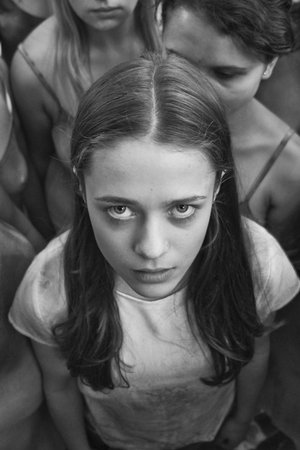 6.6
6.6Return(en)
A girl is at school. Suddenly it's as if she can't breathe. As she runs down the stairs we follow her into her mind. It takes us deep into dark woods.
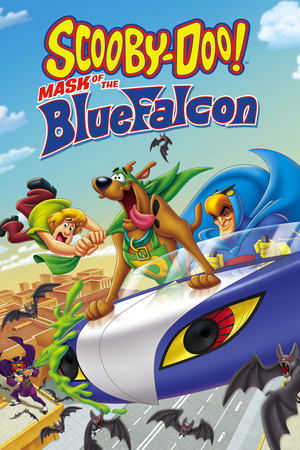 7.7
7.7Scooby-Doo! Mask of the Blue Falcon(en)
The Mega Mondo Pop Cartoon-a-Con in sunny California marks the spot for mystery in this all-new original Scooby-Doo adventure! The Mystery Inc. pals -- Fred, Daphne, Velma, Shaggy and Scooby -- head to the annual convention, but they're not there to crack their next case. They want to meet their favorite comic book characters and see a megabucks movie premiere, an explosive big-screen remake of the classic cartoon The Adventures of Blue Falcon, featuring Shaggy and Scooby's favorite superheroes: caped avenger Blue Falcon and his trusty but bumbling robo-pup, Dynomutt.
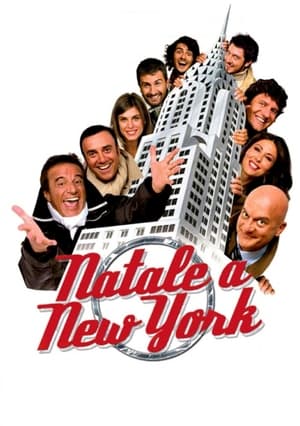 5.0
5.0Natale a New York(it)
Lillo (Christian De Sica) married Milena, one of the richest women in Europe. The marriage contract provides that Lillo undertakes to never cheat on her, under penalty of divorce and not even a penny of alimony. But one day he meets Barbara (Sabrina Ferilli) and it's immediately irresistible passion... Filippo Vessato (Fabio De Luigi) is a young surgeon who, to make a career, is forced to suffer the harassment of his head, Professor Benci (Claudio Bisio). Filippo is about to go to New York to get married and Benci does not miss an opportunity to further harass him by asking him to bring a gift to his son, a "model" student at Riverside College.
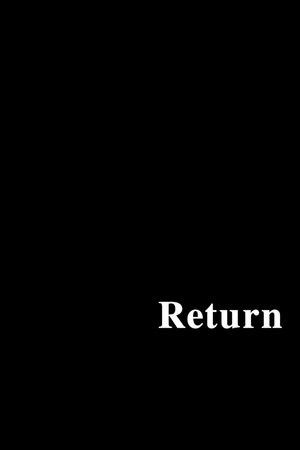 6.6
6.6Return(en)
A young man returns home for the weekend to discover the difficulty of juggling friends, parents, magic mushrooms and several thousand chickens.
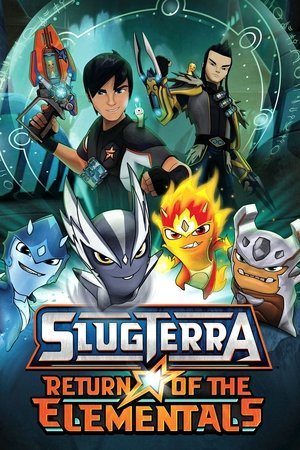 7.0
7.0SlugTerra: Return of the Elementals(en)
A new member has joined Eli and the Shane Gang! Junjie, once the protector of the Eastern Caverns, is a master of the slugslinging art of Slug Fu! But even with the power of five slingers, the Shane Gang find themselves in over their heads as they race across The 99 Caverns in search of the Legendary Elemental Slugs. The five Elementals are ancient slugs of great power, and the forbearers of all slugs found in SlugTerra today. In the wrong hands, they could bring Slugterra to the brink of destruction. So when an evil alliance starts hunting down the Elementals, Eli and his friends — old and new — take off in pursuit of the greatest threat their world has ever faced!
 6.6
6.6Return to Jurassic Park(en)
A multi-part documentary about the making of the Jurassic Park trilogy. Each part walks through the making of part of one of the films, including the hurricane during the shooting of the first film, and how advances in CGI for Jurassic Park helped change the world of special effects forever. All interviews for these retrospective documentaries come with comments from Spielberg, Johnston, Neill, Dern, Goldblum, the effects crews, the child actors, and Peter Stormare. This documentary is broken into six parts: Dawn of a New Era (25 min), Making Prehistory (20 min), The Next Step in Evolution (15 min), Finding the Lost World (28 min), Something Survived (16 min), and The Third Adventure (25 min).
 6.9
6.9Transformers: Titans Return(en)
After the Combiner Wars ended, Cybertron started to be rebuilt. However, an undead Starscream has been reincarnated as Trypticon, wreaking havoc around him. To combat this menace, Windblade gathers up a ragtag team of Transformers, including Optimus Prime and Megatron, to resurrect an ancient ally. And while some may be forever changed by the events, others may not emerge with their sparks intact.
Similar Movies
 7.0
7.0Frantz Fanon: Black Skin, White Mask(en)
Explores the life and work of the psychoanalytic theorist and activist Frantz Fanon who was born in Martinique, educated in Paris and worked in Algeria. Examines Fanon's theories of identity and race, and traces his involvement in the anti-colonial struggle in Algeria and throughout the world.
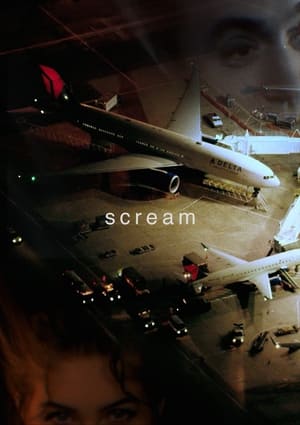 0.0
0.0Scream(en)
An experimental essay film about terrorism, media, violence and globalisation. Three infotainment news broadcasts - a rollercoaster, a hijacking, and an influencer - are soundtracked by pulsating experimental electronics that push the psychic residue of a post war-on-terror world out of the unconscious and onto the screen. Capitalism, imperialism, desire; all three are implicated in a nihilism that has seeped from the news into the social psyche.
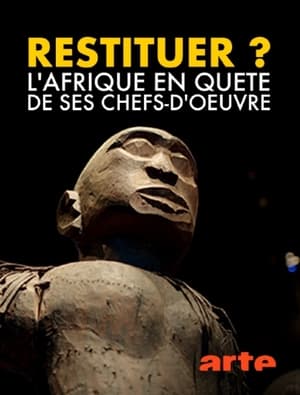 7.3
7.3Restitution? Africa's Fight for Its Art(fr)
There is an interlinking history of violent European colonialism and the cultural legacy of ethnographic collections in institutions. This documentary traces the progression of colonial history from the Berlin Conference of 1884-85 to the systematic elimination of cultural traditions, religions and lifeways which would occur sporadically through genocides and warfare until the early 20th century throughout the African continent—surveying the inquiries and movements for historical justice, the relationships between European institutions and colonial violence and following enduring struggles against these organisations to regain what was taken.
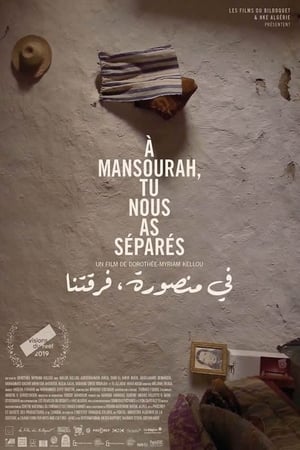 10.0
10.0In Mansourah You Separated Us(fr)
Originally there was a silence. That of Malek, the filmmaker’s father, who for years said nothing of his childhood in Algeria. And then, the need to break the silence, with a script that he gives to his children, to start telling his story. Several years later, the father and daughter finally make the journey to Mansourah, his native village: seeing his house, meeting other men who experienced the same heartbreak. Little by little, the film reveals what Malek, like many others, has long kept quiet about.
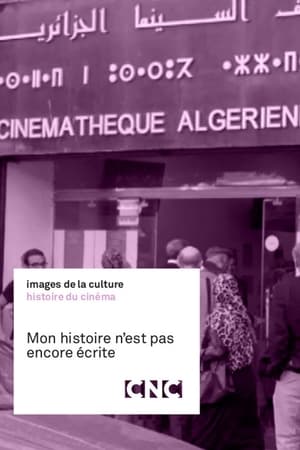 10.0
10.0My Story Is Not Yet Written(fr)
Jacqueline Gozlan - who left Algeria with her parents in 1961 - nostalgically retraces the history of the Algiers Cinematheque, inseparable from that of the country's Independence, through film extracts and numerous testimonies; notably that of one of its creators, Jean-Michel Arnold, but also of filmmakers such as Merzak Allouache and critics such as Jean Douchet. A place of life for Algerians, the Cinémathèque was the hub of African cinemas. Created in 1965 by Ahmed Hocine, Mahieddine Moussaoui and Jean-Michel Arnold, the Cinémathèque benefited from the excitement of Independence. The Cinematheque becomes a meeting place for Algiers society, future filmmakers find their best school there. In 1969, the Algiers Pan-African Festival brought together all African filmmakers, and from 1970, Boudjemâa Kareche developed a collection of Arab and African films.
 6.9
6.9The First 54 Years: An Abbreviated Manual for Military Occupation(he)
An exhaustive explanation of how the military occupation of an invaded territory occurs and its consequences, using as a paradigmatic example the recent history of Israel and the Palestinian territories, the West Bank and the Gaza Strip, from 1967, when the Six-Day War took place, to the present day; an account by filmmaker Avi Mograbi enriched by the testimonies of Israeli army veterans.
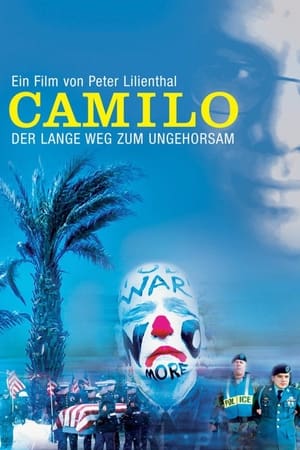 10.0
10.0Camilo: The Long Road to Disobedience(de)
The award-winning filmmaker Peter Lilienthal is dedicated to this extremely poignant documentary of U.S. military policy and the living conditions of former resistance fighters in Latin America.
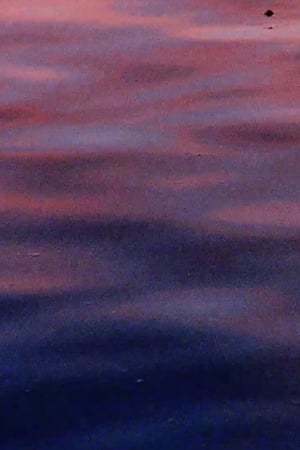 4.0
4.0Color-Blind(fr)
A synaesthetic portrait made between French Polynesia and Brittany, Color-blind follows the restless ghost of Gauguin in excavating the colonial legacy of a post-postcolonial present.
 6.0
6.0The Panafrican Festival in Algiers(ar)
Festival panafricain d'Alger is a documentary by William Klein of the music and dance festival held 40 years ago in the streets and in venues all across Algiers. Klein follows the preparations, the rehearsals, the concerts… He blends images of interviews made to writers and advocates of the freedom movements with stock images, thus allowing him to touch on such matters as colonialism, neocolonialism, colonial exploitation, the struggles and battles of the revolutionary movements for Independence.
 7.0
7.0143 Sahara Street(fr)
Alone in a small white house on the edge of national road 1, the Trans-Saharan road, which connects Algiers to Tamanrasset crossing the immensity of the desert, Malika, 74, one day opened her door to the director Hassen Ferhani, who came there to scout with his friend Chawki Amari, journalist at El Watan and author of the story Nationale 1 which relates his journey on this north-south axis of more than 2000 km. The Malika of Amari's novel, which Ferhani admits to having first perceived as a "literary fantasy", suddenly takes on an unsuspected human depth in this environment naturally hostile to man. She lends herself to the film project as she welcomes her clients, with an economy of gestures and words, an impression reinforced by the mystery that surrounds her and the rare elements of her biography which suggest that she is not from the region, that she left the fertile north of Algeria to settle in the desert where she lives with a dog and a cat.
 7.0
7.0Pornotropic(fr)
When French writer Marguerite Duras (1914-96) published her novel The Sea Wall in 1950, she came very close to winning the prestigious Prix Goncourt. Meanwhile, in Indochina, France was suffering its first military defeats in its war against the Việt Minh, the rebel movement for independence.
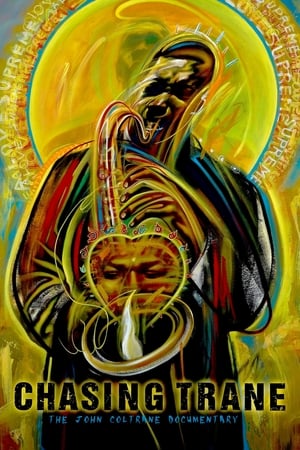 7.3
7.3Chasing Trane(en)
An account of the life of the brilliant jazz musician John Coltrane (1926-67), a gifted saxophonist, an extraordinarily talented thinker whose original, avant-garde work has impacted and influenced people all over the world. A story about music's ability to entertain, inspire and transform.
 6.0
6.0Many Beautiful Things(en)
In an age when women were incapable of joining the artistic dialogue, Lilias Trotter managed to win the favour of celebrated critics.
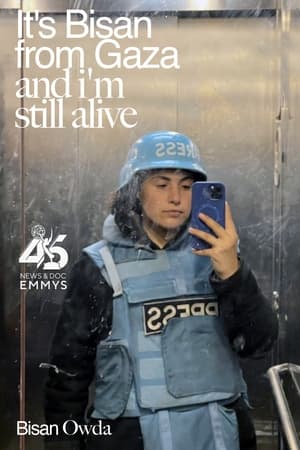 10.0
10.0It's Bisan from Gaza and I'm Still Alive(ar)
Bisan Owda, journalist and influencer collaborator of the media AJ+, is at the forefront of reporting by filming with her phone, the daily life of Palestinians to the world since October 7, 2023, the start of the war and devastation from Gaza. Owda's storytelling style and resilience have captured international attention, with his work widely covered by international media. She received an Emmy Award in 2024 for her outstanding coverage of the ongoing conflict in Gaza.
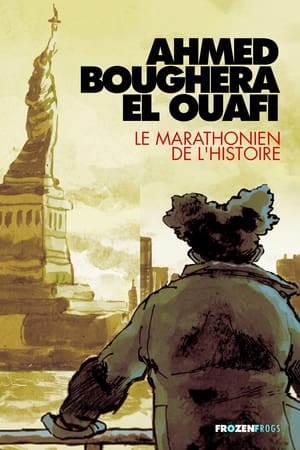 10.0
10.0El Ouafi Boughera, The marathon runner of history(cn)
On August 5, 1928, after 2 hours and 32 minutes of racing, the 71st rooster wearing the bib entered the Olympic stadium in Amsterdam. Ahmed El Ouafi Bouguéra wins the gold medal and becomes the first Olympic champion from the African continent. He achieved his feat under the tricolor flag. The start of his real marathon is underway. The history of sport extends to the history of Algeria and France. This documentary retraces the different stages of the life of this great champion, not only the history of sport but also the great story. Archival photographs and interviews mingle with the painted paintings. The series thus once again gives voice to this forgotten hero, one of the great heroes of immigration who defended France for more than a century.
 7.5
7.5To Be Twenty in the Aures(fr)
A group of refractory and pacifist Bretons is sent to Algeria. These beings confronted with the horrors of war gradually become killing machines. One of them did not accept it and deserted, taking with him an FLN prisoner who was to be executed the next day. International Critics Prize at the 1972 Cannes Film Festival. Copy restored in 2012
 6.8
6.8Sociology Is a Martial Art(fr)
"I often say sociology is a martial art, a means of self-defence. Basically, you use it to defend yourself, without having the right to use it for unfair attacks." (Pierre Bourdieu) The world has witnesses who speak out loud what others keep to themselves. They are neither gurus, nor masters, but those who consider that the city and the world can be thought out. The sociologist, Pierre Bourdieu is one such witness." Over a three- year period, Pierre Carles' camera followed him through different situations: a short conversation with Günter Grass, a lively conference with the inhabitants of a working-class suburb, his relations with his students and colleagues and his plea that sociology be part of the life of the city. His thinking has a sort of familiarity, which means it is always within our reach. It is the thinking of a French intellectual who has chosen to think his times.
 7.7
7.7Hearts and Minds(en)
Many times during his presidency, Lyndon B. Johnson said that ultimate victory in the Vietnam War depended upon the U.S. military winning the "hearts and minds" of the Vietnamese people. Filmmaker Peter Davis uses Johnson's phrase in an ironic context in this anti-war documentary, filmed and released while the Vietnam War was still under way, juxtaposing interviews with military figures like U.S. Army Chief of Staff William C. Westmoreland with shocking scenes of violence and brutality.
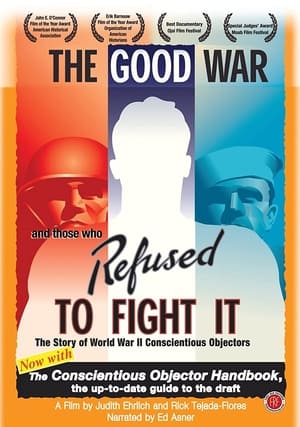 6.0
6.0The Good War and Those Who Refused to Fight It(en)
A documentary focusing on American conscientious objectors during WWII.
